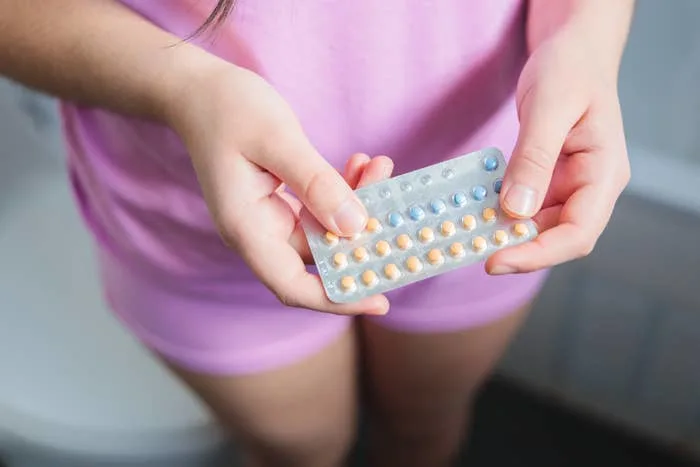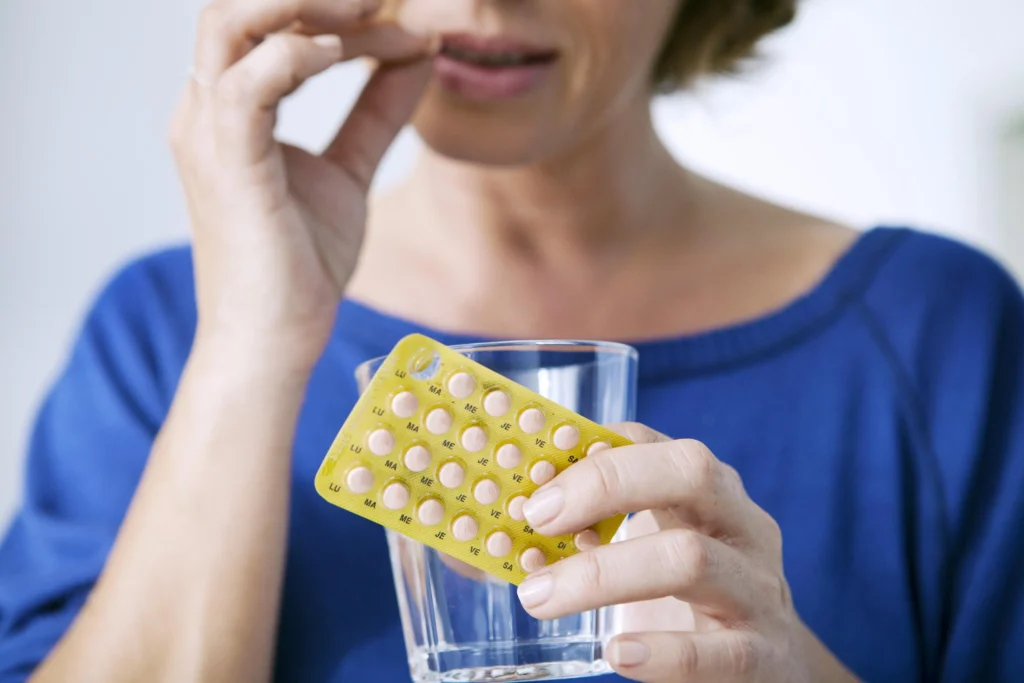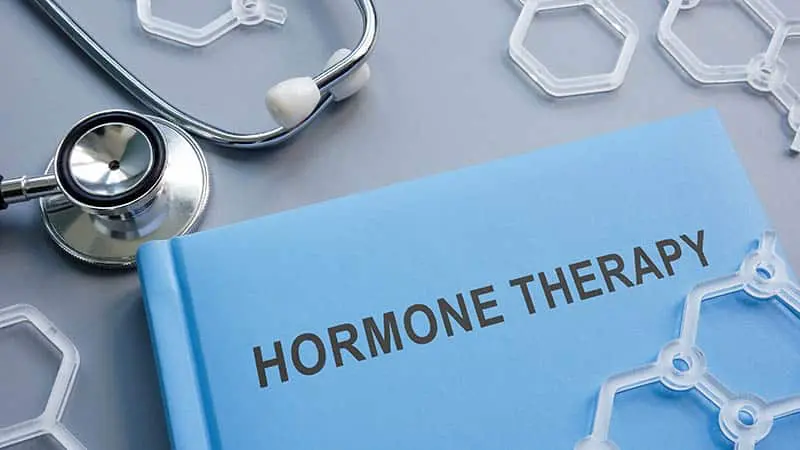Hormone replacement therapy and depression are closely connected, especially during the menopausal transition when hormone levels shift. At SensIQ, Dr. Luke Barr, Chief Medical Officer, emphasizes that clear, evidence-based guidance helps women make informed choices about treatment options while protecting long-term health.
Key Takeaways
- Hormone replacement therapy and depression are linked, as shifting hormone levels during the menopausal transition can affect brain chemistry and mood.
- HRT may reduce symptoms of depression and anxiety for some women, particularly in early postmenopause, but results vary and risks must be considered.
- Side effects such as bloating and rare long-term risks like breast cancer highlight the need for individualized medical supervision.
- Alternatives for menopause and depression treatment include antidepressants, therapy, lifestyle changes, and supportive nutrients like Vitamin B12.
- Consulting a healthcare professional is essential to evaluate treatment options and ensure safety in women’s health management.
Can HRT Cause Depression or Anxiety?
The answer is complex. HRT and depression are linked because hormone changes can alter brain chemistry, which affects mood symptoms such as sadness, anxiety, or irritability. While many women experience beneficial effects, others may feel worse in the early weeks of treatment.
Why do some women feel worse on HRT
During the first months, hormone levels adjust and may temporarily intensify symptoms of depression. This does not mean HRT always harms mental health. Instead, it highlights the need for close monitoring and medical supervision.
Can HRT cause bloating?
Yes, bloating is one of the common symptoms some women experience with HRT. It often improves as the body adapts, but persistent discomfort should be discussed with a doctor.
Why responses to HRT differ
Responses vary depending on age, stage of menopausal transition, baseline hormone levels, and whether a woman already experiences depression or anxiety. These differences explain why treatment must be individualized.
Hormones and Mood in Menopause
Hormonal shifts during menopause play a central role in mood symptoms. Estrogen and progesterone influence brain neurotransmitters that regulate stress and emotional balance. When these hormones decline, women may notice increased symptoms of depression, night sweats, and hot flashes, all of which affect quality of life.

Estrogen replacement therapy and depression
Estrogen therapy has been studied for its impact on major depressive disorder and mood symptoms in early postmenopause. Some studies report beneficial effects, especially in women with recent onset of depressive symptoms.
Estrogen patch depression
For some women, the estrogen patch provides steady hormone delivery, which may reduce mood swings. However, every woman’s body reacts differently, and continuous monitoring is recommended.
Testosterone replacement therapy and depression
Testosterone therapy is sometimes considered when low levels contribute to fatigue and mood changes. While not a first-line treatment, it may improve quality of life in selected cases.
Hormone replacement therapy, depression menopause
HRT menopause depression treatment remains a debated area. Evidence suggests HRT may be helpful for some women, but risks such as breast cancer must always be weighed.
Does HRT Help With Depression and Anxiety?
Many ask, will HRT help with depression? Research shows that for some women, especially in early postmenopause, HRT reduces symptoms of depression and anxiety. Still, it is not a universal solution.
Best HRT for depression: what research shows
There is no single “best HRT for depression.” The most effective type depends on individual factors like age, medical history, and hormone levels. A study showing improved outcomes often highlights the importance of tailoring therapy.
HRT and depression medication: using both together
Some women require both HRT and depression medication. When combined, antidepressants can address major depression while HRT relieves menopausal symptoms like hot flashes or night sweats. Medical oversight ensures safe integration.
Clinical studies on outcomes
Evidence suggests beneficial effects of HRT on mood symptoms, but studies also stress limits. Not all women experience relief, and major depressive disorder may need additional treatment options. You can read more about managing postmenopausal hormone balance for long-term health considerations.
Risks and Side Effects of Hormone Therapy
While HRT offers potential benefits, it carries risks that must be considered carefully.
Permanent side effects to know
Long-term HRT may slightly increase the risks of breast cancer, blood clots, or stroke. These outcomes are rare but important when evaluating treatment.
Vitamins you should not take with HRT
Certain supplements, such as high-dose vitamin E, may increase bleeding risk when combined with hormone therapy. Always review supplements with a healthcare provider.

MTF HRT depression — what to know
Transgender women using MTF HRT may also report mood symptoms. Some experience depression, while others notice improved emotional stability. Monitoring by specialists is essential.
Signs You May Need HRT
Recognizing when HRT may help is important. Common symptoms include persistent hot flashes, night sweats, and mood symptoms that reduce quality of life.
Emotional and physical indicators
Women who experience depression linked to the menstrual cycle or menopausal transition may benefit from evaluation. Irritability, sleep problems, and declining focus are additional signals.
When to talk to your doctor
If symptoms of depression interfere with work, family, or relationships for more than 12 months, or if non-hormonal strategies fail, a medical review is recommended.
Treatment Options Beyond HRT
Not every woman is a candidate for hormone therapy. Fortunately, there are effective alternatives.
Alternatives for menopause depression
Options include antidepressant medications, cognitive behavioral therapy, exercise, and supplements that target mood symptoms. These can improve quality of life without altering hormone levels.
Perimenopause depression treatment
Women in perimenopause may require early treatment. Lifestyle changes, counseling, and antidepressants are helpful approaches. Individualized care ensures women experience the best outcomes.
Nutritional support can also play a role. For example, Vitamin B12 supports nerve health and energy levels, and low levels are sometimes linked to symptoms of depression.
A study published in the Journal of Psychopharmacology found that B12 deficiency may increase the risk of depressive symptoms, reinforcing the importance of adequate intake (PubMed 22221769). While not a replacement for medical care, nutrients like B12 may complement broader treatment options.
Comparison of HRT vs other treatments
HRT may relieve hot flashes and improve sleep, while antidepressants may target major depression directly. Many women benefit from a combination, chosen with medical guidance. Exploring how hormonal changes influence aging is also important, and this guide on rapid aging after menopause explains the connection in detail.


